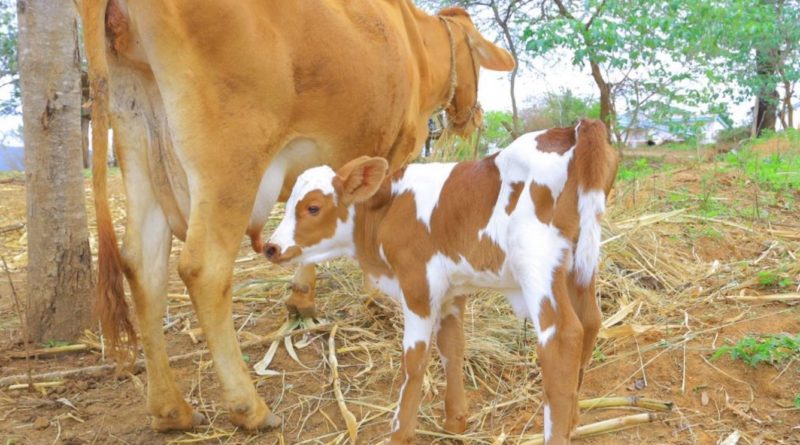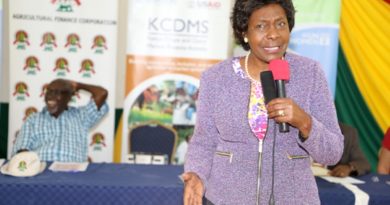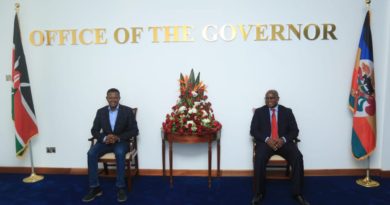Artificial Insemination
On Saturday, October 19th this year saw Douglas Mutinda of Mbitini welcomed the first calf under Artificial Insemination programme. He witnesses the birth of his new stock with joy and pronounces hope in the quality of the breed.
Many school essay writing queries were developed as a means for universities to receive more information about you. There isn’t a exceptional tactic to showcase these attributes in relationship to the school composition. The 1st stage to writing a roaring school composition is selecting the best issue. Since the answers may arrive at a conclusion whether you can attend the faculty that you dream of, that is a superior thought to rehearse with some sample essay prompts.
“I have now believed in this exercise. I now have a superior breed added to my stock”. He says amid smiles.
His case is among the many others that have been recorded in the subsequent days in the area that received the first insemination services after launch.
Kitui County launched the mass Artificial Insemination in January 2019 with a target of improving on the quality of the livestock breeds both for dairy and beef.
The initiative introduced by the County Ministry of Agriculture, Water and Livestock also sought to consequently increase milk and meat production therefore increasing income to households that keep livestock.
The county is estimated to have 401,265 heads of cattle, and only 6,685 dairy cattle, hence leaving a huge milk demand deficit that are bridged by suppliers of milk from outside
“If each of 60,000 livestock keeping households in Kitui can produce only 5 litres of milk per day, that would be 300,000 liters per day. If these retail at Ksh 50 per litre it would fetch Ksh 15 million per day, Ksh 450 million per month and Ksh 5.4 billion annually!” said Ngilu.
The insemination exercise was launched on January 26th, 2019 in Mbitini, Kitui Rural and it was rolled subsequently to all parts of the county.
According to Kitui Deputy Governor Dr. Wathe Nzau, more calves are expected to be born in the next four months.
Dr. Wathe, a veterinary surgeon, opines artificial livestock keeping as the next frontier in the county’s farming vision that would see many farmers benefit from the technology.
He says that the county expects an estimated 7000 superior calves in the first round of the exercise.
“This exercise is the beginning. We have major plans for the livestock farmers and elaborate arrangements to improve their livestock and multiply their gains”. Says Wathe.
The multiplication drive under Ngilu’s administration marks the first mass exercise in Kitui – a county with a long history of livestock keeping.



